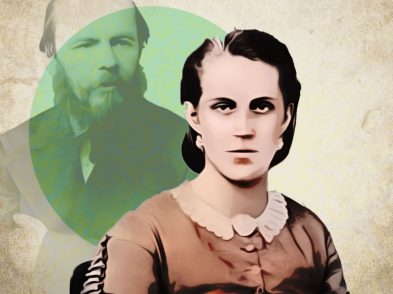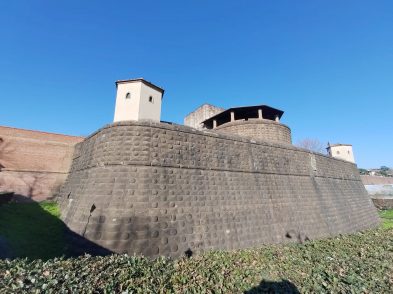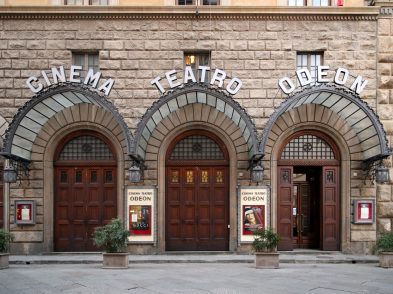Singer-songwriter, actor
and showman, Renato Zero, turned 60 on September 30, 2010. He
celebrated his birthday by giving six unique concerts entitled Sei
Zero in Rome’s piazza di Siena.
Not unlike David
Bowie for the poetry of his music and lyrics and, during the budding
stage of his career, for his extravagant make-up, costumes and
staging as well as for his sexual ambiguity and in-your-face
provocations, Zero has been on the entertainment scene for over 40
years.
The son of a nurse
and a policeman who had dreamed of being a baritone, Zero, whose real
name is Renato Fiacchini, was born in Rome, where he grew up in the
tough working class suburb of Montagnola. He studied music, singing,
dancing and acting at the Istituto di Stato per la Cinematografia e
la Televisione Roberto Rossellini but never graduated.
Already with a flair
for cross-dressing, at 14 Zero began working in small venues around
Rome. He took the stage name Renato Zero as many in his audiences
told him his performance was nothing but a big ‘zero.’ Not easily
discouraged, he persevered. His break came in 1966, when he was
‘discovered’ by Italo-American dancer and choreographer Don Lurio
at Piper, a famous nightclub in Rome. He invited Zero to join the
Collettoni e Collettine,
the backup dance troupe on the singer Rita Pavone’s national TV
show. It was there that he became friends with the singers Loredana
Bertè and her sister, Mia Martini. During this period, he also
worked in radio and, in 1967, cut Non
basta, sai, his first single. It sold
only 20 copies. Undaunted, Zero continued to perform in musicals like
the Italian version of Hair and appeared as an extra in films such as
Federico Fellini’s Satyricon and Casanova.
Zero came into his
own when glam rock burst onto the scene in the 1970s. Its flamboyant
androgyny and masque-like greasepaint appealed to the showman in him.
At the time, he had already recorded a couple of albums and had
initiated his long-term song-writing collaboration with Piero
Pintucci and Franca Evangelisti, but his first big success came with
his album Zerofobia,
which had extraordinary songs, such as Mi
vendo and Il
cielo, and the touring show based on it
catapulted him to fame.
This fame escalated
when he opened his circus tent theatre called Zerolandia, conceived
of as the promised land of love, friendship and equality. It was
filled nightly by his fans, nicknamed sorcini (‘little mice’) because of the way some
scattered on their motorcycles to get out of the path of his car
during a tournée in Viareggio in 1980. His appearances, in 1982, as
a guest artist on Fantastico 3,
the TV programme coupled with the annual draw of the state lottery,
secured his status as a star.
However, in the
mid-1980s, Zero seemed to fall into lull, which he later managed to
surmount in 1989 by going to England, where he worked with talented
musicians and recorded new material. In the 1990s, he was back on
Italian television, performing at San Remo festivals and on variety
shows. In what is now considered a cult performance, in 1993 he
dubbed the voice of Jack Skellington in the Italian version of the
animated film Nightmare before Christmas and in 1995 released a CD entitled Sulle
tracce dell’imperfetto, celebrating
his 30th anniversary in the music business. It featured I
migliori anni della nostra vita, one of
his most popular songs.
With his career on the
upswing since the turn of this century, he has returned to the
spotlight with such memorable events as entertaining Pope John Paul
II in the Vatican in 2004 and his benefit concert at the Olympic
Stadium in Rome in June 2009 for L’Aquila earthquake victims.
A little less lithe than
he was 40 years ago and now often soberly dressed in black, Zero has
always used his music and popularity to campaign against drug abuse,
unsafe sex and all forms of discrimination, especially sexual
discrimination. Although fiercely protective of his private life, one
aspect of it is well known to the public. In 2003, Zero, who has
never married, adopted a young man who had spent much of his infancy
in an institution. Having taken his adoptive father’s surname,
Roberto Fiacchini married in 2004 and has since made Zero a
grandfather twice over.
No mystery, however,
surrounds the fact that over the last four decades, Zero has written
more than 500 songs, released 23 singles and 30 albums, performed in
unforgettable one-man shows both on the stage and on television and
has made numerous music videos. In total, he has sold almost 20
million records, which makes him a legendary figure in the history of
Italian pop music and culture. There is no doubt he will remain so in
the future.
Then and now
See the early Renato
Zero in a 1978 video of his song Triangolo (www.youtube.com/watch?v=zwpjBxDzqr0).
Then compare today’s Renato Zero as he sings in a video of I
migliori anni della nostra vita taped in late 2009 (www.youtube.com/watch?v=Q11U_uexuPU).







